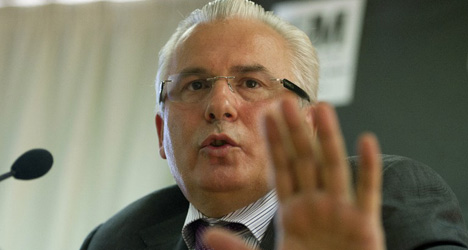Garzón, who famously tried to extradite Chile's former dictator Augusto Pinochet from Britain in 1998, is legal director of anti-secrecy group Wikileaks, which helped organize Snowden's exit from Hong Kong over the weekend.
But Garzón's firm, ILOCAD, has decided not to take on the Snowden case, the lawyer said in a statement, without giving an explanation.
"This serves to state that the law firm ILOCAD has decided not to represent Mr. Snowden, whose whereabouts are unknown," said Garzón, who is the law firm's director.
Garzón said his firm would continue to represent Wikileaks chief Julian Assange "as senior legal counsel in the defence of the fundamental right to freedom of information and expression".
Garzón said he was "satisfied" with a draft resolution by the legal affairs and human rights committee of the Council of Europe Parliamentary Assembly that said people who disclose criminal acts in the public interest should be protected from retaliation and persecution from those who commit them.



 Please whitelist us to continue reading.
Please whitelist us to continue reading.
Member comments